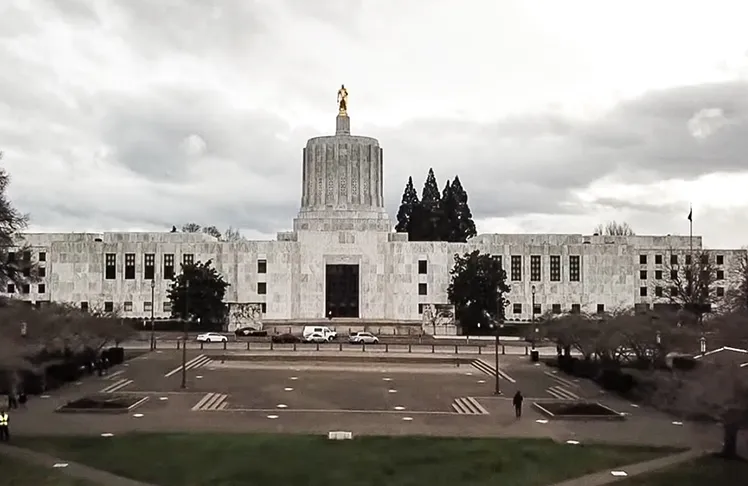
This fall, Oregon voters will have the opportunity to cast their ballots on a groundbreaking measure that proposes a universal basic income (UBI) program, which would provide every resident with an estimated $1,600 per year. If approved, Oregon would become just the second state in the nation to implement such a program, following Alaska’s long-standing initiative.
The proposed Measure 118 seeks to fund this ambitious program through a new 3% tax on corporate sales exceeding $25 million within the state. Proponents of the measure argue that it aims to alleviate poverty and stimulate the local economy by redistributing wealth directly to Oregonians of all ages and income levels. The initiative is expected to generate approximately $1.3 billion in revenue during the upcoming biennium, with projections for even greater amounts in future years.
“We believe that by raising corporate taxes and distributing the funds equally among all residents, we can provide much-needed financial relief and support to Oregonians,” said a spokesperson for the measure’s supporters. They contend that the initiative will ensure corporations contribute their fair share, ultimately benefiting the entire state.
However, Measure 118 has sparked significant controversy and pushback from various stakeholders, including Governor Tina Kotek, leaders from both the Democratic and Republican parties, and numerous businesses and nonpartisan research organizations. Critics argue that the proposed tax could lead to increased prices for consumers, discourage businesses from operating in Oregon, and siphon crucial funds away from essential state services.
The debate over Measure 118 has raised concerns regarding potential unintended consequences. A state report indicates that some families receiving the UBI could inadvertently lose eligibility for federal benefits, such as food stamps, due to the additional income from the program.
“While the intention behind this measure is commendable, the reality is that it could do more harm than good for many residents,” a representative from the opposing coalition stated. “We need to consider the broader implications of such a tax and the potential burden it could place on our economy.”
The momentum for universal basic income has been building across the country, with various cities and counties launching their own UBI initiatives. Early reports from these programs reveal promising outcomes, such as improved quality of life and increased ability for residents to afford basic necessities.
If passed, Measure 118 could fundamentally reshape the financial landscape for Oregonians, providing a safety net that many argue is necessary in an increasingly unpredictable economy. The outcome of this measure is poised to have lasting implications, not only for Oregon but also for the national dialogue around basic income initiatives and tax reform.















